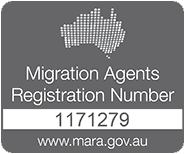Updated: 1st July 2024
CHANGING EMPLOYER WHILE HOLDING AN EMPLOYER SPONSORED VISA (Nomination and Visa Transfer)
This fact sheet explains what happens if you need to change employer while you are on a Subclass 482 or Subclass 494 Visa.
This page explains what happens if you need to change employer while you are on a Subclass 482 or Subclass 494 Visa.
About an Employer Sponsored Visa
If you hold a Subclass 482 (Temporary Skills Shortage) or Subclass 494 (Skilled Employer Sponsored Regional) Visa, your visa grant notice will list Condition 8607, which explains that you must only work for your sponsoring employer in the nominated occupation. Certain occupations, specifically Medical Practitioners and Chief Executive Officers have exemptions from the operation of Condition 8607.
If your employment ends while holding a 482 or 457 visa, for any reason – either by your resignation, or by your termination or redundancy – you have up to 180 consecutive days in which to find another employer to take over your visa. During the 180 days, you can work for other employers without being sponsored. However, in order to remain on that visa in Australia, you will need to find another employer to take over your sponsorship and resume working in your nominated occupation. .
This page explains the process of transferring your temporary employer sponsored visa to a new employer.
How does a new Employer take over the Sponsorship?
If you find a new employer, and they agree to take over your visa sponsorship, the employer needs to take steps to formally nominate you.
1. Depending on whether the employer has sponsored before, they may need to first apply to become a Standard Business Sponsor.
2. The employer must meet any required labour market testing (advertising) for the position, before a nomination can be lodged. This may delay the nomination process by a month; but in some cases labour market testing is not required, or may have already been completed.
3. The nomination is lodged, and the employer pays the Skilling Australians Fund levy which matches the remaining term of your visa. For example if you held a 4 year Subclass 482 visa, and your initial employment ended after one year, there would only be 3 years left on your visa.
4. Provided the new employer is employing you in the SAME nominated occupation as listed on your current visa, your existing visa will be transferred to the new employer, once the nomination is approved. If, however, you have been nominated in a different occupation, a new Visa application will be required as well.
5. If you are between employers, you may be already working for the nominating employer, if so your employment can simply continue until the nomination is approved.
Frequently Asked Questions
No – all costs associated with the new nomination (and standard business sponsorship) can only be paid by the employer. The employer cannot, by law, ask a visa holder, or their family, to pay for, or reimburse the employer for these costs. Costs will include nomination lodgment charge; Skilling Australians Fund Levy, and migration agent costs. The visa holder can ONLY pay for visa application related costs, if a new visa is required.
If your visa is close to expiry, you might want to also apply for a new visa at the same time; or if your new job is under a different occupation code. Otherwise, if you are being transferred into the same occupation, and you have time left on your visa, there is no need for a new visa now.
No, the new nomination is a confidential matter between yourself and the new employer. Your existing employer will not be notified that a new nomination has been lodged or approved, as this would breach your confidentiality.
It is not illegal. Your employer has nominated you to work for them, and you will have a contract of employment which complies with Fair Work Conditions. But, the Government will not allow an employer to “own” you, as this can open the door to mistreatment of vulnerable overseas workers, and would be in contravention of legislation which aims to prevent modern slavery. Therefore, you have the same rights as an Australian, to seek other employment. If you feel you are being mistreated or underpaid in your current employment, you might contact Fair Work Australia for advice.
However, if your employer is treating you fairly, and in accordance with your contract, it would be respectful to consider the impact on your employer before you leave. Your employer has spent considerable money in recruiting and sponsoring you, and may be open to negotiation if you are in some way unhappy with your job.
You would need to give your resignation in writing to your current employer, in accordance with your contract, which should state how much notice you need to give. This allows the employer to start looking for a replacement, and for you to hand over your work to someone else. You may work out a contractual notice period, as most people do not resign from current employment before a new nomination is approved. Once your notice period has ended, you must start work with your new employer within 90 days.
Currently a Subclass 482 or 494 visa holder has 180 days to find a new employer and have a nomination lodged to transfer the visa across to them. You can work for another non-sponsor employer while you are between sponsors. After 180 days, if a new nomination has not been lodged, the Department may seek to cancel your visa.
Yes. Under changes which came into effect on the 1st July 2024, a sponsored worker has up to 180 consecutive days in which they may cease employment with their sponsor and in their nominated position. (During the entire period of the visa, the time they can cease work cannot exceed 365 days cumulatively). During this period, you may work for another employer, and in a different occupation. Remember however, that it is important you look for a new sponsor, if you plan to remain in Australia. You will not be able to meet the requirements for permanent residence under Transition stream, unless you have been properly re-nominated by a new employer.
Yes, you can. But you will need to meet the qualifying time period with your new employer. The clock will start again, once you move employers. The qualifying time period for transition stream permanent residence is 2 years. You also need to meet other requirements, such as age, health, and character, to obtain permanent residency.
How can Emergico help?
We can advise you, if you are on a sponsored visa, about your options if your employment is ending, or if you are encountering problems with your employment.
If you have a potential new employer, we can connect with them and provide information about sponsorship and nominations. Please provide us with contact details for your proposed new employer.
We can manage the nomination transfer process on behalf of your employer, unless doing so would put us in a conflict position with another client.



